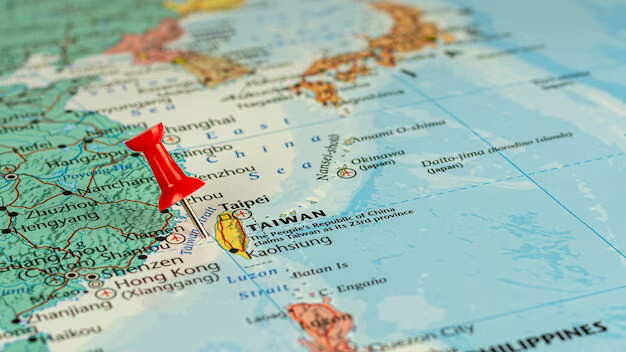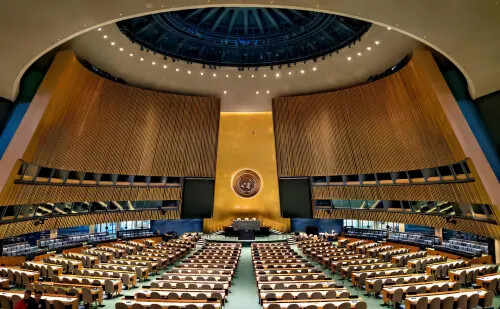

Taiwan, an oceanic island nation located in East Asia, boasts magnificent scenery, friendly people, and a diverse culture; however, its name is nowhere to be found on the world map. During the Olympics, the team representing Taiwan cannot use its own name and flag but instead "Chinese Taipei" and the Olympic five-ring flag; in the United Nations and international organizations, Taiwan has no place, and a country that has never ruled this land claims to "represent" Taiwan. What exactly is going on with all of this?
From colony to nation
Located on the southeastern coast of East Asia's mainland, early Taiwan, like other Austronesian-speaking countries, had scattered indigenous tribes, forming tribal powers among various ethnic groups. Over hundreds of years, immigrants from different regions arrived on this island, which had been successively colonized by foreign powers such as the Dutch, Spanish, Zheng clan, and Qing dynasty. Finally, in 1895, it was ceded to the Japanese Empire and forcibly thrust into the ranks of modernization.
Under Japanese rule, Taiwan gradually transformed from a remote and desolate island into a modern colonial showcase and even became a key stronghold for advancing into the South Seas. However, the people on the island, with the rise of ethnic consciousness, found themselves lost in the prison of self-identity. After World War II, the Taiwanese people, who had eagerly awaited autonomy, were once again mercilessly slaughtered by the regime from China. For nearly a century, this island once again fell under the control of rulers, binding the free souls of this land. Through the blood sacrifices of many predecessors, freedom, and even life itself as the cost, Taiwan finally ushered in political democratization, and the suppressed indigenous consciousness gradually developed and thrived, ultimately leading to the disintegration of the ruling clique of external powers. By the end of the 20th century, genuine autonomy was achieved for the first time. As the true masters of this land, the Taiwanese people finally began to recognize themselves and tell our story to the world.
Diplomatic dilemmas and national identity conflicts
Since 1945, Taiwan has been continuously ruled by the Republic of China, which retreated from China. Although the political transition of the 1990s reduced the dominance of the state apparatus by external forces, historical issues from the past have presented challenges both externally and internally for Taiwan.
Due to the ongoing cross-strait divide since 1949, the People's Republic of China still claims Taiwan as its "sacred and inseparable part" and frequently intimidates and pressures Taiwan internationally. As a result, Taiwan has long been unable to participate in international events under its own name and flag, and it is also unable to participate in important international organizations such as the UN, WHO, and ICAO etc. Even private events in Taiwan often face suppression and harassment from China. On the other hand, the authoritarian regime has caused prolonged confusion in the self-identity of the Taiwanese people, especially over the past three decades, with many still struggling between identifying as "Taiwanese" or "Chinese". Additionally, differing historical perspectives and life experiences among different ethnic groups have made it difficult to consolidate a national identity, despite all living on the same land. The concept of "nation" remains vastly different among different ethnic groups.
Nevertheless, the people of Taiwan have never given up their pursuit of democracy and freedom. Over the past few years, through various means, Taiwanese people have been striving to make the world hear their voices. The Taiwan United Nations Alliance was established against this backdrop, hoping to advocate through activities to make the world see Taiwan and truly integrate Taiwan as a member of the global community.
Taiwan's dimlomats status :
Only 12 countries recognize Taiwan's governmant, and none of them is major country.
Taiwan cannot use its name in Olympic Games, APEC and other regional organizations instead of Chinese Taipei.
The UN system has been rejected Taiwan's particiation of using the name of TAIWAN due to China's objection, and call Taiwan as Taiwan, Province of China.
The Chinese government has claimed Taiwan is a part of China incorrectly with the No.2758 of UN assembly, created the the frame of so called "One China Principle", and has threaten other countries do not have any contact with Taiwan. In fact, No.2758 had none of word refering Taiwan.
US, UK, Canda, Japan and most of countries do not recognize Taiwan as an independant nation, but maintain unofficial relations with Taiwan, this is the One China Policy. For example, US government has set a de facto embassy AIT (American Institute in Taiwan) in capital Taipei, and has assisted Taiwan defence itself basis on Taiwan Relations Act and Six Assurances.

